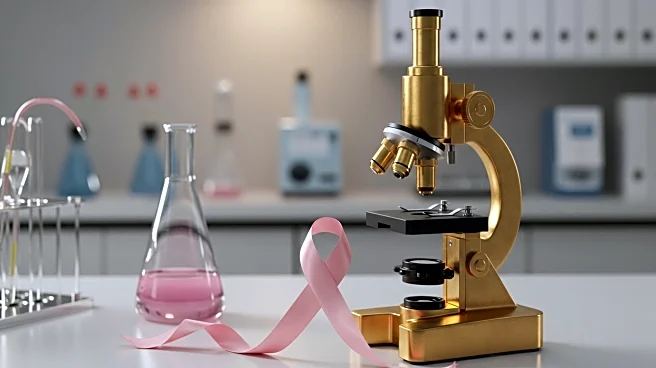What's Happening?
Phil Knight, co-founder of Nike, along with his wife Penny, has donated $2 billion to the Oregon Health & Science University's Knight Cancer Institute. This donation is aimed at expanding the institute's capacity for cancer treatment and research. The gift is the largest ever made to a university, underscoring Knight's commitment to philanthropy in the Oregon community. The Knight Cancer Institute, led by Dr. Brian Druker, is expected to use the funds to advance its revolutionary vision for cancer research, diagnosis, treatment, and care. Knight's previous contributions to the institute include a $100 million donation in 2008 and a $500 million donation in 2013.
Why It's Important?
This substantial donation by Phil Knight is poised to significantly impact cancer research and treatment capabilities at the Knight Cancer Institute. By establishing the institute as a self-governed entity within OHSU, the donation aims to foster innovation and progress in cancer care. The funding will likely accelerate the development of new treatments and potentially lead to breakthroughs in cancer eradication. This move also highlights the growing trend of philanthropic efforts in the healthcare sector, where private donations are increasingly crucial for advancing medical research and patient care.
What's Next?
The Knight Cancer Institute will likely begin implementing plans to utilize the $2 billion donation for expanding its research and treatment facilities. This may involve recruiting additional researchers, investing in new technologies, and enhancing patient care services. The institute's leadership will be focused on maximizing the impact of this donation to achieve its long-term goals in cancer research and treatment. Stakeholders in the healthcare and philanthropic communities will be watching closely to see how this funding transforms the institute's capabilities.
Beyond the Headlines
Phil Knight's donation reflects a broader trend of influential figures using their wealth to drive social change and support critical causes. This philanthropic gesture not only benefits the local community but also sets a precedent for other wealthy individuals to contribute to public health initiatives. The ethical implications of such large donations include the potential for increased influence over public institutions, which may raise questions about governance and accountability.









